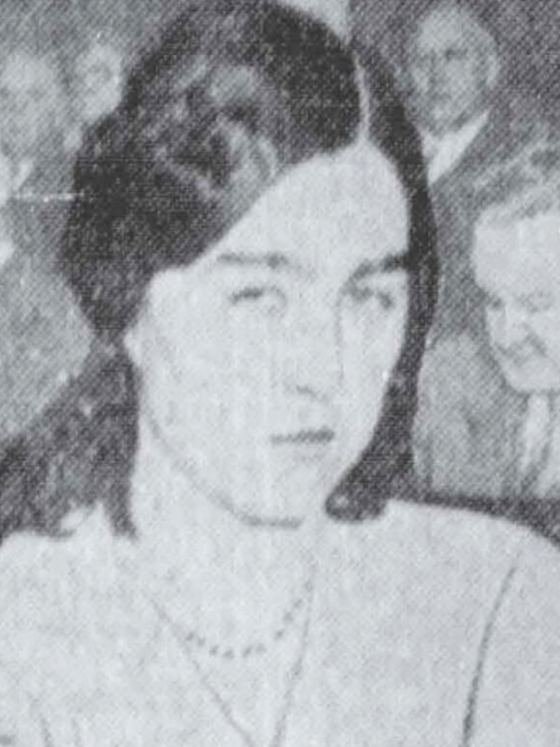The Tragedies of Dryden – Part One

Having immersed myself in true crime from an early age, I can say that some cases really stick with you for whatever reason. They strike a chord deep inside, even if you can’t necessarily explain why. I was in my teens, working at a movie theater. It was a slow weeknight, so I stood at the concession stand alone and read about the small town of Dryden, New York.
It was in a magazine, and I could have sworn it was Rolling Stone. But it could have also been Spin, or some magazine such as that (eta: It was Spin! A 2001 issue). I remember the article was about two teenage girls in 1996 who had been getting ready to go to a football game, but they never showed up. When their bodies were found, it was yet another tragedy that had struck the small town in a short span of time.
Reading the article made me physically ill to think about what those two girls went through, especially since we were the same age that I was at the time when they died. I put the magazine away and went about my life, but the case occasionally resurfaced in my mind.
As of 2010, the village of Dryden, located in Dryden, New York, had a population of about 1,900. It’s easy to imagine that this is the kind of town where everyone more or less knows everyone else.
So maybe death hits a bit harder when it’s someone you might see every day, say hello to, or even only know by name. Dryden isn’t the first small town to deal with unspeakable tragedy, but I think some people zeroed in on this town and its horrors because of how close together everything seemed to happen. It’s overwhelming.
The Crime
A decade of pain began in 1989, when Warren “Tony” Harris, his wife, Dolores “Dodie” Harris, and their two children were found murdered on the morning of December 23rd. Tony was an electronic sales director and would have turned 40 the week he was murdered. Dodie, 41, owned a crafts shop named The Grey Goose, which she ran out of a barn beside their home. Their daughter, Shelby, was 15 years old, and their son Marc, 11.
On the night of December 22nd, each family member had been tied up and shot in the head before their bodies were set on fire to try and destroy evidence. Shelby Harris had been sexually assaulted before her death.
A neighbor heard the smoke alarm the following day and notified police, who found the family’s remains. People in the town of Dryden were understandably frightened by the brutal murders.
”It’s probably just an isolated thing, but people are spooked by it,” said Tom La Londe, who lived a few miles away from Ellis Hollow. [*]
Shortly after the investigation began on December 23rd, police were notified of an attempt at various ATMs to withdraw cash using bank cards belonging to Dodie and Tony Harris. Credit cards stolen from the Harris home were also used to buy purchases from multiple shopping centers. Composites were drawn from witness statements, leading police to search for a young adult black man and a middle-aged black woman.
On January 8th, 1990, a neighbor who lived four miles from the Harris family told police that in the early morning of December 23rd, he noticed a van driven by a black male go by with an older black woman in the passenger seat. After thinking about it, he apparently couldn’t be definitively sure that he saw what he thought he saw, and on February 3, he withdrew his statement to investigators.
Shirley Kinge and her son, Michael, were soon identified as the woman and man in question. Based on the evidence, investigators obtained a search warrant for Kinge’s property and an arrest warrant for Michael.
On February 7, 1990, the police attempted to arrest suspect Michael at his home, but found Kinge with a shotgun under his chin. The gun misfired, causing the police to open fire, killing Kinge. Because of his death, it was impossible to determine precisely what the motive was for the Harris family murders. Still, police believed it to be robbery, given the stolen bank and credit cards. Shirley was charged with four counts of second-degree murder and possessing stolen property.
In November of that year, Shirley was eventually convicted of burglary in the first degree, third-degree arson, second-degree forgery, hindering prosecution in the first degree, hindering prosecution in the second degree, and criminal possession of stolen property.
The most damning evidence against her, beyond her admittance of using the stolen cards, was that her fingerprints matched those found on the kerosene cans that set the Harris home ablaze.
And then something rather shocking – or not so shocking, depending on who you talk to – happened. After serving 2.5 years in prison, Shirley Kinge’s conviction was overturned on August 25, 1992. Trooper David Harding admitted to fabricating evidence during an interview with the CIA. He and other troopers had lifted Kinge’s fingerprints from her job and planted them on the gasoline can to implicate her in the murders. This was a significant scandal, resulting in at least 34 other cases of evidence being planted by the troopers.
Kinge rightfully sued the state of New York for her wrongful conviction. She asked for $500 million, but the judge only awarded her $250,000, based on her admittance that she had used the stolen credit cards.
Shirley Kinge died in 2015 at the age of 80.
It’s difficult to fathom so much evil in one person, to enter a home and torture and brutalize a family before murdering them and setting their house on fire. And then to take their credit cards and go shopping? It’s possible that Shirley Kinge had no idea what Michael had allegedly done, though she was aware that they were using stolen credit cards. Even so, she did not deserve what law enforcement did to her by planting evidence to get a conviction. It’s a horrible situation all around, made worse by the actions of the people who are supposed to serve, protect, and find the truth.
Unfortunately, the murders of the Harris family and the wrongful conviction of Shirley Kinge were only the beginning of Dryden’s decade of terror.
Part 2 coming soon….
Sources:
- Small Town Hit by Big Wave of Tragedy: Deseret.com
- Remember the Dark Days of Dryden: Ithaca Voice
- Kinge v. State: Court of Claims of New York
- 4 Grisly Killings Fuel Terror in a Hamlet: The New York Times







